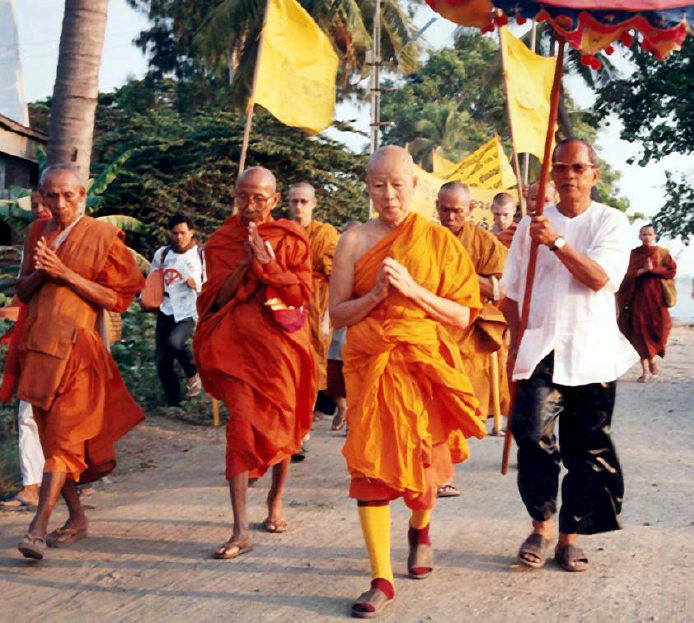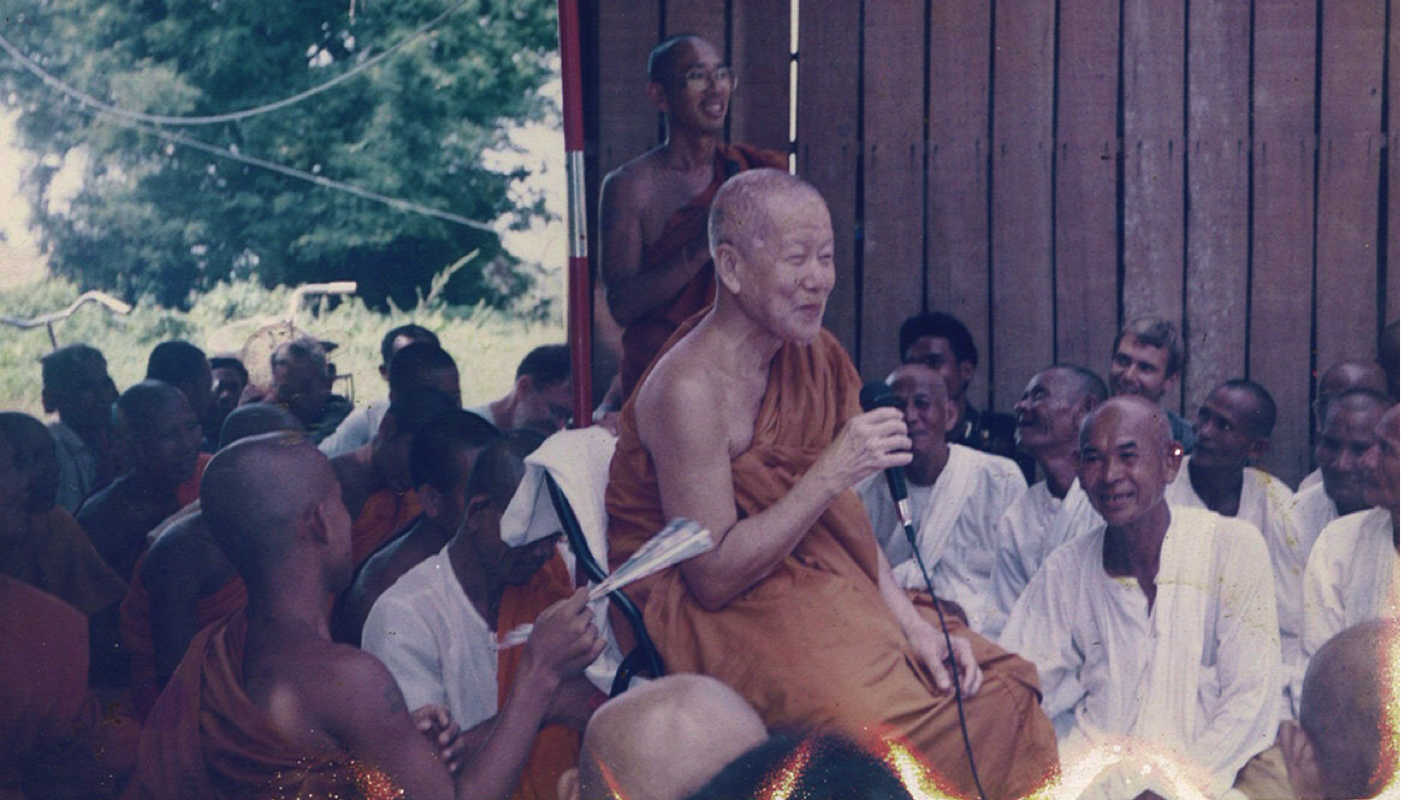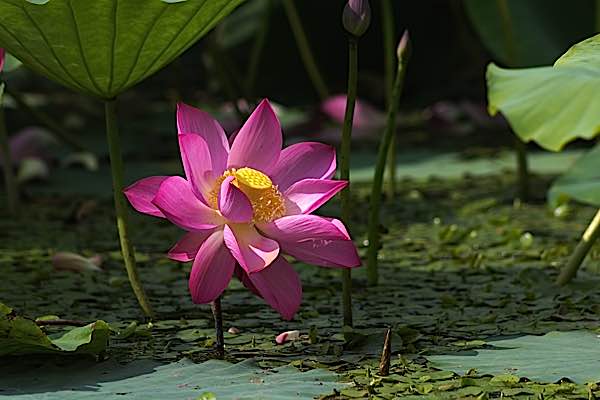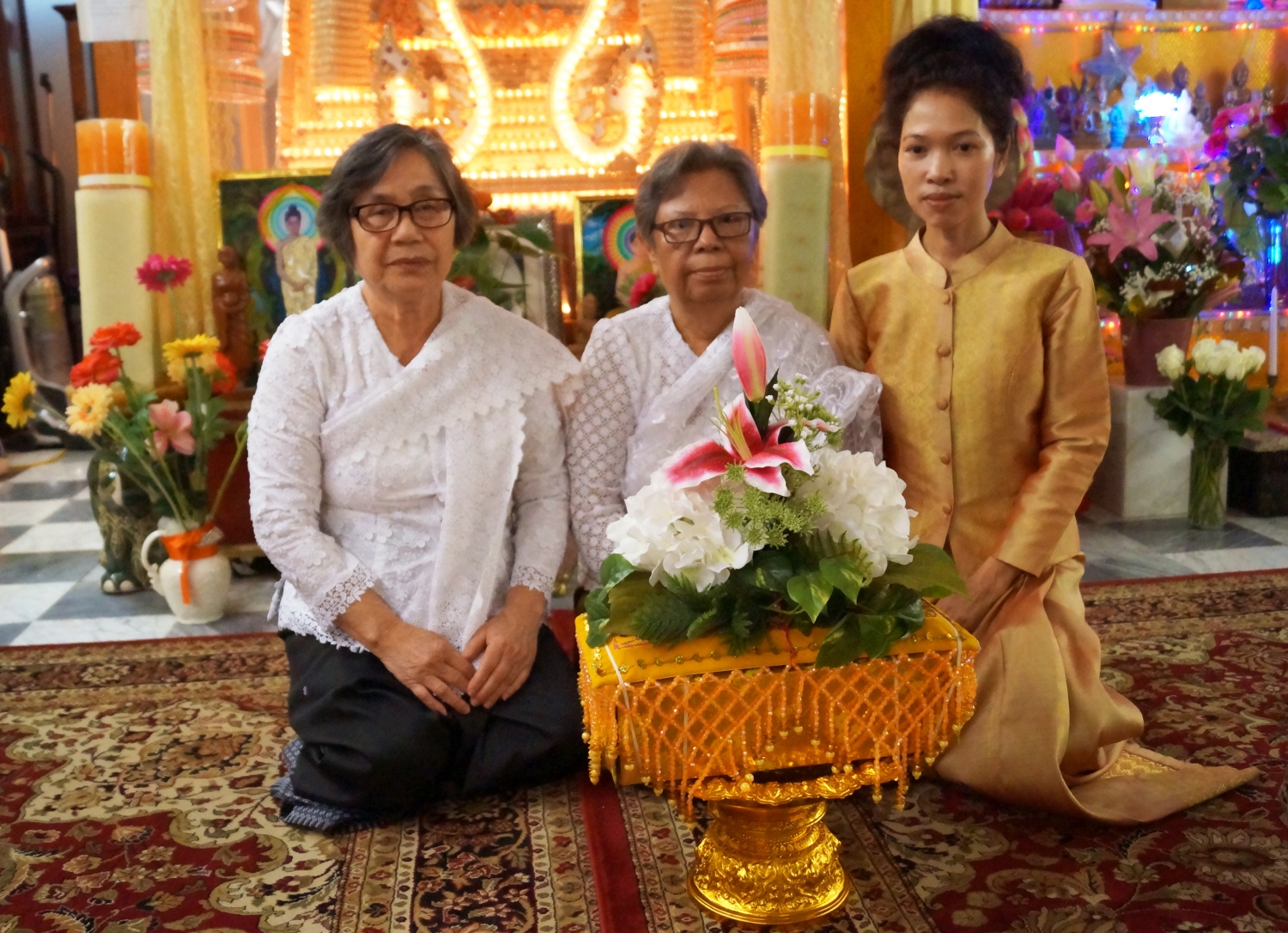The Story of Thera Revata
Verse 98: In a village or in a forest, in a valley or on a hill, wherever arahats dwell, that place is delightful.
The Story of Thera Revata
While residing at the Jetavana monastery, the Buddha uttered Verse (98) of this book, with reference to Thera Revata of the Acacia (khadira) Forest.
Revata was the youngest brother of the Chief Disciple, Sariputta. He was the only one of the brothers and sisters of Sariputta who had not left home for the homeless life. His parents were very anxious to get him married. Revata was only seven years old when his parents arranged a marriage for him to a young girl. At the wedding reception, he met an old lady who was one hundred and twenty years old, and he realized that all beings are subject to ageing and decay. So, he ran away from the house and went straight to a monastery, where there were thirty bhikkhus. Those bhikkhus had been requested earlier by Thera Sariputta to make his brother a samanera if he should come to them. Accordingly, he was made a samanera and Thera Sariputta was informed about it.
Samanera Revata took a subject of meditation from those bhikkhus and left for an acacia forest, thirty yojanas away from the monastery. At the end of the vassa, the samanera attained arahatship. Thera Sariputta then asked permission from the Buddha to visit his brother, but the Buddha replied that he himself would go there. So the Buddha accompanied by Thera Sariputta, Thera Sivali and five hundred other bhikkhus set out to visit Samanera Revata.
The journey was long, the road was rough and the area was uninhabited by people; but the devas looked to all the needs of the Buddha and the bhikkhus on the way. At an interval of every yojana, a monastery and food were provided, and they travelled at the rate of a yojana a day. Revata, learning about the visit of the Buddha, also made arrangements to welcome him. By supernormal power he created a special monastery for the Buddha and five hundred monasteries for the other bhikkhus, and made them comfortable throughout their stay there.
On their return journey, they travelled at the same rate as before, and came to the Pubbarama monastery on the eastern end of Savatthi at the end of the month. From there, they went to the house of Visakha, who offered them alms-food. After the meal, Visakha asked the Buddha if the place of Revata in the acacia forest was pleasant.
And the Buddha answered in verse as follows:
Verse 98: In a village or in a forest, in a valley or on a hill, wherever arahats dwell, that place is delightful.
Dhammapada Verse 98
Khadiravaniyarevatatthera Vatthu
Game va yadi varanne
ninne va yadi va thale
yattha arahanto viharanti
tam bhumiramaneyyakam.
Source: Tipitaka


















